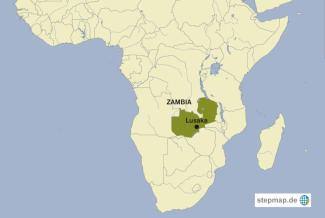Charities
Refuge in a storm

The home, founded more than three decades ago, is run by the Missionary Sisters of the Holy Family, a Catholic religious order. It survives mainly on donations from well-wishers. With the impact of Covid-19, however, the home faces growing difficulties. Contributions of food, clothing and medicines from Zambian charities and businesses have all but dried up, as donors face pandemic-related financial problems.
“Since the outbreak of Covid-19 it has been tough to provide for the basic needs of the people being taken care of here,” says Sister Judith Bozek, 78, a Polish nun who heads the home. “Everything is more expensive now; it is difficult to cope in this pandemic,” Sister Bozek says. “A few people still show up sometimes to donate food, medical supplies, clothes and diapers for the orphans, but the needs are great. But we thank God; He is with us for sure.”
Residents say the Sisters running the home have managed admirably in these difficult times. Teddy Chipili, 68, from Luapula Province in northern Zambia, has lived at the home for over two years. He says the Holy Family Sisters rescued him from homelessness. “I was admitted to a hospital for six months, and after my discharge I lost my income and could not pay my rent. I was stranded, and I thank Sister Bozek and her team for having considered my predicament.”
Esnart Kangwa, 62, also arrived destitute. She has chronic diabetes and hypertension and eventually her family was unable to pay her medical bills. “Without Sister Bozek I would be dead now,” she says.
The Divine Providence Home is not the only charity facing pandemic-related difficulties. The United Nations Children’s Fund (UNICEF) says the pandemic has had a devastating impact on all types of social services, particularly those for children. Many children, adolescents and elderly people in Zambia are vulnerable to poverty, violence, family separation, malnutrition and disease.
In an effort to close the gap between their needs and what charities can provide, Zambia’s government introduced the Service Efficiency and Effectiveness for Vulnerable Children and Adolescents initiative in 2017. The initiative combines social protection programmes and government cash transfers with case management. The aim is to increase access to services for households caring for vulnerable children and adolescents.
“The government is committed to addressing these vulnerabilities,” says Pamela Kabamba, permanent secretary of the Ministry of Community Development and Social Services. “The programme expands protection for the most marginalised Zambians.”
Derrick Silimina is a freelance journalist based in Lusaka. He focuses on Zambian agriculture and sustainability issues.
derricksilimina@gmail.com








